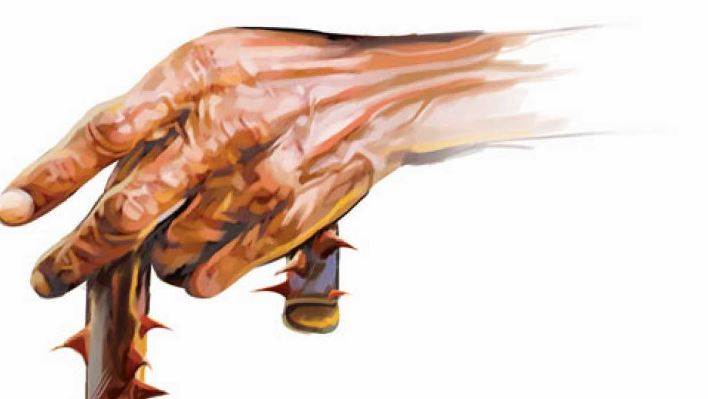
01-Oct-2020
World Elderly Day 2020 : How Keep Old Folks Healthy
According to the World Health Organization (WHO), by the year 2050, in the next 30 years, the population of people aged 60 years or older will increase to 2 billion (200 million), and 80 percent of the population in middle and low-income countries. According to the figures of the United Nations, by 2050 India will also see an increase of about 20 percent in the elderly population.
The Covid-19 epidemic has put the lives and health of the elderly aged 60 years and above at risk. The death toll due to Covid-19 infection is also the highest number of elderly people, so the elderly have been kept in the high-risk group and have been advised not to leave the house unless it is very important.
At this time it becomes even more important to take care of the health of the elderly. International Veterans Day is celebrated worldwide on 1 October. On this occasion, we are telling you which medical tests are necessary for the elderly above 60 years of age,
1. Blood Pressure Check: 1 in 3 elderly people have hypertension problems. According to the US CDC, 64 percent of men and 69 percent of women between the ages of 65 and 74 have high blood pressure. High blood pressure is often called the silent killer because it increases the risk of stroke or heart attack without showing any symptoms. Therefore it is necessary to have your blood pressure checked regularly.
2. Blood test to check for lipids (fat): Healthy or good cholesterol and triglycerides levels in the body reduce the risk of heart attack or stroke. So a blood test should also be done once a year so that the level of cholesterol in the blood can be ascertained.
3. Colorectal Cancer Test: After the age of 50, you must have a colonoscopy once every 10 years. But if you have a history of colorectal cancer in your family, then you should have a colonoscopy test more often.
A digital rectal test is also done to check for the presence of cancerous polyps in the anal passage. If this cancer is diagnosed soon, it can be easily treated. However, many cases of colorectal cancer do not catch up until they reach the advanced stage.
4. Eye test (Eye test): The American Academy of Ophthalmology suggests that everyone should undergo basic eye screening at age 40.
Apart from this, if you wear eyeglasses or apply contact lenses, then you should get your vision test done every year and if you do not wear glasses, then it is necessary to get tested once every 2 years. The risk of getting diseases like glaucoma or cataract also increases due to increasing age.
5. Ear Test (Hearing Test): Another common problem of old age is hearing loss or hearing loss. Sometimes this problem can be caused by an infection or other medical condition. So once in 2 to 3 years, the elderly must get their audiogram test done. Audiograms examine a person's ability to hear at different levels of pitch and intensity of voice.
READ HERE MORE : NASA Builds Whopping $ 23 Million Toilet At ISS
6. Diabetes Test: According to the 2019 National Diabetes and Diabetic Retinopathy Survey report released by the Ministry of Health and Family Welfare, diabetes was found to be present in 11.8% of people above 50 years of age. The prevalence of diabetes disease was 12% in males and 11.7% in females, which means that both populations are equal. Therefore, people above 45 years of age should undergo diabetes screening every year. A fasting blood sugar test or A1C blood test is done for diabetes. If there is a history of diabetes in the family, then a blood test must be done once every 3-4 months.
7. Mammogram test: The American Cancer Society says that women between the ages of 45 and 54 should undergo clinical breast examination regularly and mammogram tests once a year. Women over 55 years of age should undergo a mammogram test once every 2 years or every year. Due to breast cancer to any member of the family, you are at a higher risk of it. The doctor can suggest an annual breast checkup.
8. Prostate cancer test: There is no definite fact about age and how often prostate cancer should be done. The American Cancer Society suggests that doctors may discuss screening with people 50 years of age who have an average risk of prostate cancer. To detect prostate cancer, either a digital rectal test is performed or the level of prostate-specific antigen (PSA) is measured in the person's blood.
9. Bone density test: Osteoporosis in the elderly is a very common disease and if an elderly person has this problem and their bone fractures, especially of the ax or hip, then the risk of permanent disability or death of that person also increases significantly. . So get serious about your condition with aging and ask your doctor when you need to get a bone density test. Women should undergo a bone density test at the age of 65.

Developer
I am a content writter !
Solutions
Join Our Newsletter
Subscribe to our newsletter to receive emails about new views posts, releases and updates.
Copyright 2010 - 2026 MindStick Software Pvt. Ltd. All Rights Reserved Privacy Policy | Terms & Conditions | Cookie Policy